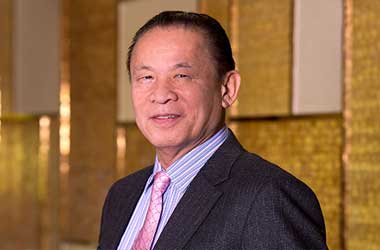 The Swedish government is looking at make changes to current advertising regulations for online gambling operators. The Finance Ministry put forward a proposal to move online gambling advertising which is currently falls under a requirement for moderation category to a new category for special moderation.
The Swedish government is looking at make changes to current advertising regulations for online gambling operators. The Finance Ministry put forward a proposal to move online gambling advertising which is currently falls under a requirement for moderation category to a new category for special moderation.
Spelinspektionen, which is the gaming regulator in Sweden, has also supported the proposal from the Finance Ministry. However, the Branschföreningen för Onlinespel (BOS) which is the Swedish Trade Association for Online Gambling has rejected the proposal.
Multiple countries including the Italy, Spain and the UK have looked to limit gambling advertisements as they feel that the general public is being bombarded with gambling advertising too frequently.
Sweden is following down the same path as the Finance Ministry feels something more needs to be done to restrict gambling advertising.
The new proposal would make it mandatory for all gambling ads to carry a disclaimer and make it clear to consumers of the risk involved with gambling. The biggest impact though will be with regards to when gambling ads will be shown as the new advertising regulations looks to implement a watershed ban and only allow gambling advertisements to run after 9 pm.
One reason for this proposal is to limit children and teenagers from being exposed to gambling ads during prime time television. Gambling ads will fall into the same category of alcohol ads if the new proposal gets rolled out.
BOS Protests Against New Ad Rules
BOS is the biggest trade association in the country representing the rights and interests of the online gambling market which has already been hit hard by the pandemic iGaming restrictions. BOS has protested the new proposal from the Finance Ministry saying that they have not weighed the pros and cons of the proposed advertising ban properly.
Gustaf Hoffstedt, secretary general for the BOS said licensed Swedish iGaming operators have been able to distinguish themselves from unlicensed and illegal operators in the country through their advertisements. By going for a watershed ban and imposing more stringent advertising regulations, they would limit the effectiveness of licensed operators and indirectly play into the hands of unlicensed operators.
Hoffstedt pointed out that the illegal online gambling market in Sweden continued to flourish as 25 percent of all iGaming revenues are going into the hands of unlicensed operators. The new ad regulations will cause even more revenue to flow into the hands of unlicensed operators and put Swedish players at more risk.

 United States
United States United Kingdom
United Kingdom















